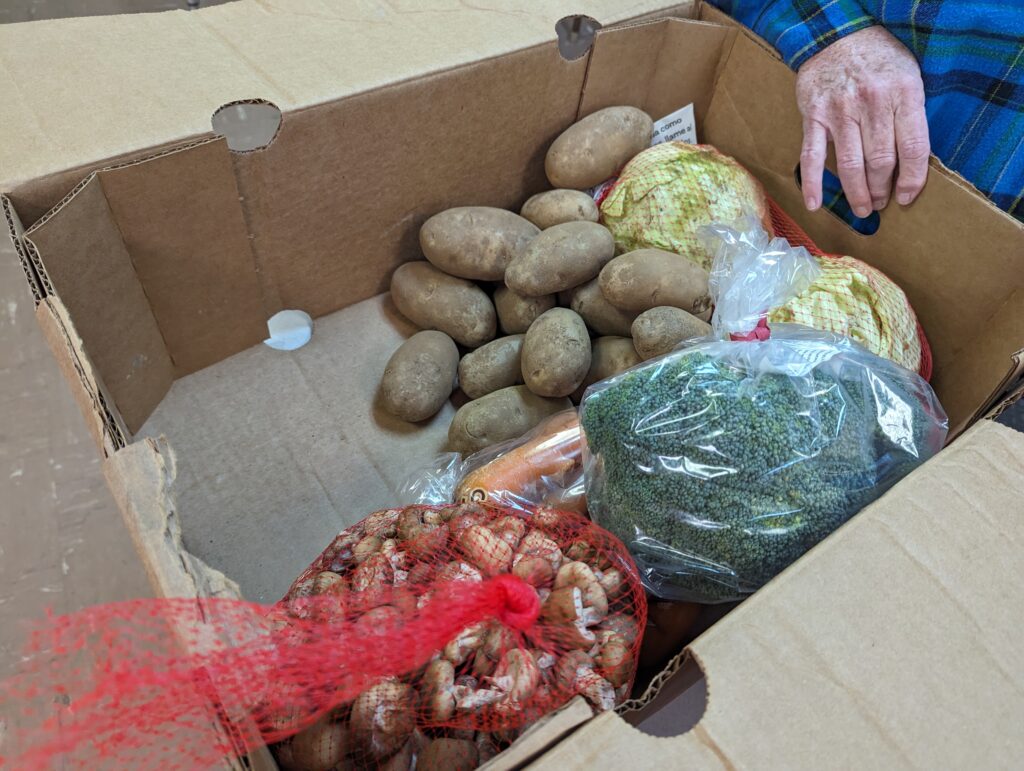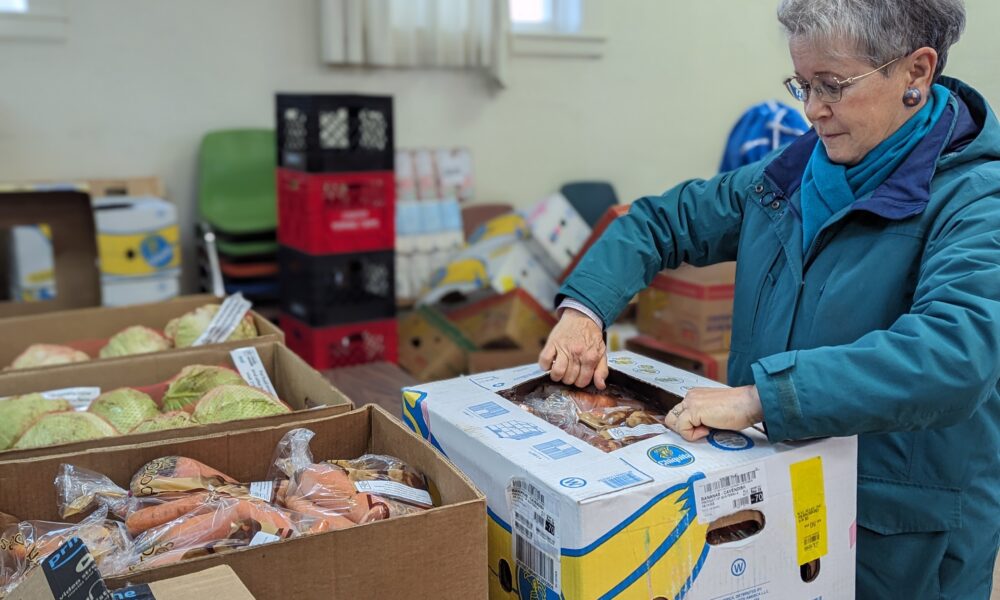Frost was still on the ground as a dozen people carrying bags and boxes lined up outside a Salem Methodist church on a recent December morning.
In the basement, volunteers at the Jason Lee Food Pantry sorted eggs, milk, mushrooms, cabbage and cans onto tables, preparing to give out hundreds of pounds of food.
The pantry is open just a few hours a week on Wednesday and Friday mornings, serving the Grant neighborhood.
About half the time, they now have to close early because they’re out of the milk, eggs and other staples most people are seeking, said Candace Nichols, pantry manager, who’s been doing the job for 25 years.
“In all the years I’ve been here, we’ve never, ever had to turn people away because we’ve run out of food,” she said.

Across the Salem area, food pantries have seen record usage in 2023 despite historically low unemployment.
From January to the end of November, the Jason Lee pantry gave food to 4,600 households for more than 21,000 meals. Weekly visits have doubled since January.
The pantries served by Marion Polk Food Share recorded a total of 18,200 households visiting in November and distributed nearly one million pounds of food.
Pre-Covid, local food banks served about 10,000 households monthly.
The demand is higher than during the worst of the Great Recession, when U.S. unemployment rates hit 10%, or during the early part of the pandemic when millions of businesses shut down almost overnight.
“Historically you could measure food bank usage and have it draw a fairly reasonable correlation … (with) unemployment numbers,” said Rick Gaupo, CEO of Marion Polk Food Share.
That’s no longer the case. Instead, food banks are serving many working people who simply don’t earn enough to pay for housing, utilities, health care and food.
“Look at food prices and housing prices and put those in relationship to average income,” Gaupo said.

That’s the case for Maria Chavez, who was among those getting food at Jason Lee.
She works in a tortilla factory, but doesn’t get many hours, she said. Her husband is a farmworker. Their earnings often aren’t enough to cover the cost of food, she said.
After picking up several bags of food, Chavez asked the volunteers if the food bank had any diapers for her child. The only package in the food bank was too big, but she took them anyway.
“It’s so many things,” Nichols said. “Living wage jobs, certainly. Affordable rent. Everything is just combining to create this situation.”
Gaupo said the rollback of some pandemic social safety net expansions has made it harder for low-income families to afford the basics.
An expanded child tax credit in 2021 gave low and middle income families an extra $1,000 per child per year back on their taxes.
Families receiving food stamps got about an extra $169 per month during the pandemic, but those extra benefits stopped in October in Oregon.
Higher demand means the Jason Lee pantry is more reliant on monetary donations to fill in the gaps. They always have canned food, she said, but families typically need the fresh produce, meat and dairy products that are either purchased or sourced directly from farmers or government programs.
“We’ve been low on everything and we can’t buy everything,” she said.
Across the system, Gaupo said keeping up with demand is a challenge.
“We’re collecting all the donated food we know how to do. We’re collecting all the government food,” Gaupo said. “If more people come that doesn’t mean we have more revenue for food.That means our food needs to be stretched farther and that’s what’s happening right now.”
The food share received $1.025 million from the Oregon Legislature earlier this year to help meet the need, part of a package of money given to food banks across the state.
They’re also spending down reserves currently to meet the need.
The Jason Lee pantry will lose its longtime home at Iglesia Metodista Unida Las Naciones in March when the building closes. If they can’t find a new home before then, they’ll have to close too.
Nichols and Gaupo said the real solution is a stronger social safety net, and policies that better support low-income families so they can meet their basic needs.
“This is how it affects people — they’re having to choose between food and everything else,” Nichols said.

Contact reporter Rachel Alexander: [email protected] or 503-575-1241.
SUPPORT OUR WORK – We depend on subscribers for resources to report on Salem with care and depth, fairness and accuracy. Subscribe today to get our daily newsletters and more. Click I want to subscribe!

Rachel Alexander is Salem Reporter’s managing editor. She joined Salem Reporter when it was founded in 2018 and covers city news, education, nonprofits and a little bit of everything else. She’s been a journalist in Oregon and Washington for a decade. Outside of work, she’s a skater and board member with Salem’s Cherry City Roller Derby and can often be found with her nose buried in a book.










